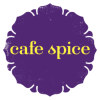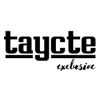Dive Brief:
- Unilever's palm oil will come entirely from traceable sources by the end of 2014, the company announced Tuesday.
- The sustainability move is a huge step for the world's largest palm oil user, as it has previously raised concerns with environmental groups due to some of its oil being unsustainably harvested from plantations in Malaysia and Indonesia, where mass deforestation has become an issue.
- Part of this solution will involve Unilever cutting the well-over-100 suppliers it acquires palm oil from down to between 10 and 20, with six or seven handling 70% of the volume.
Dive Insight:
A lower number of suppliers will allow the company—which buys 1.3 million tons of palm oil each year for Dove soap, TRESemmé shampoo, Flora margarine and other products—to more easily identify and exclude problematic suppliers. The World Wildlife Fund expects global demand for palm oil to once again double from its current 50-million-tons-a-year by 2020, so the world's largest palm oil user becoming a more responsible buyer is a huge step toward creating a more sustainable market before then. Still, only 5% of its palm oil was traceable by the end of 2012.















